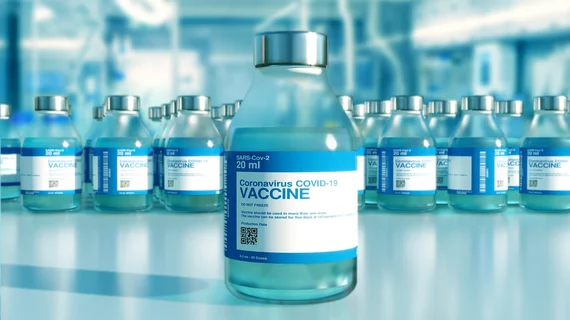A number of states did not push cancer patients to the front of the line during initial COVID-19 vaccine rollouts, despite the Centers for Disease Control and Prevention suggesting these vulnerable groups take precedence.
The side effects of treatments such as chemotherapy, along with the disease itself, often leave cancer patients susceptible to serious COVID complications. But up to two-thirds of U.S. states failed to prioritize these groups, according to new data shared Thursday at the RSNA annual meeting.
The researchers don’t believe officials purposely sidestepped these patients but pointed to the regulations themselves as possible culprits.
“I don’t think anyone intended to push people to the back of the line,” lead author Rahul Prasad, MD, with the Ohio State University Comprehensive Cancer Center in Columbus, said in a statement. “The efforts were well intentioned, but what ended up happening was that the CDC governing bodies’ definition of high-risk medical conditions was too broad.”
Supply issues forced the CDC to recommend high-risk patients ages 65 to 74 be the first to receive vaccines, along with older adults. This meant 129 million people became eligible overnight, prompting states to develop their own recommendations.
Prasad and colleagues pored over each states’ COVID webpage to identify if federal guidelines were followed. Forty-three did list cancer as a qualifier for early vaccination but only 17 followed through and included such patients during initial rollouts.
Additionally, 42 states failed to offer clear details for cancer patients seeking priority shots, the authors noted. And while eight states outlined which cancer diagnoses qualified, six said only those currently undergoing treatment were eligible.
Prasad said states can learn from their initial vaccine rollout efforts and ensure populations who need their boosters most receive them.
“It’s especially critical this time around to make sure these most at-risk people are getting their boosters in a timely fashion,” Prasad added.

